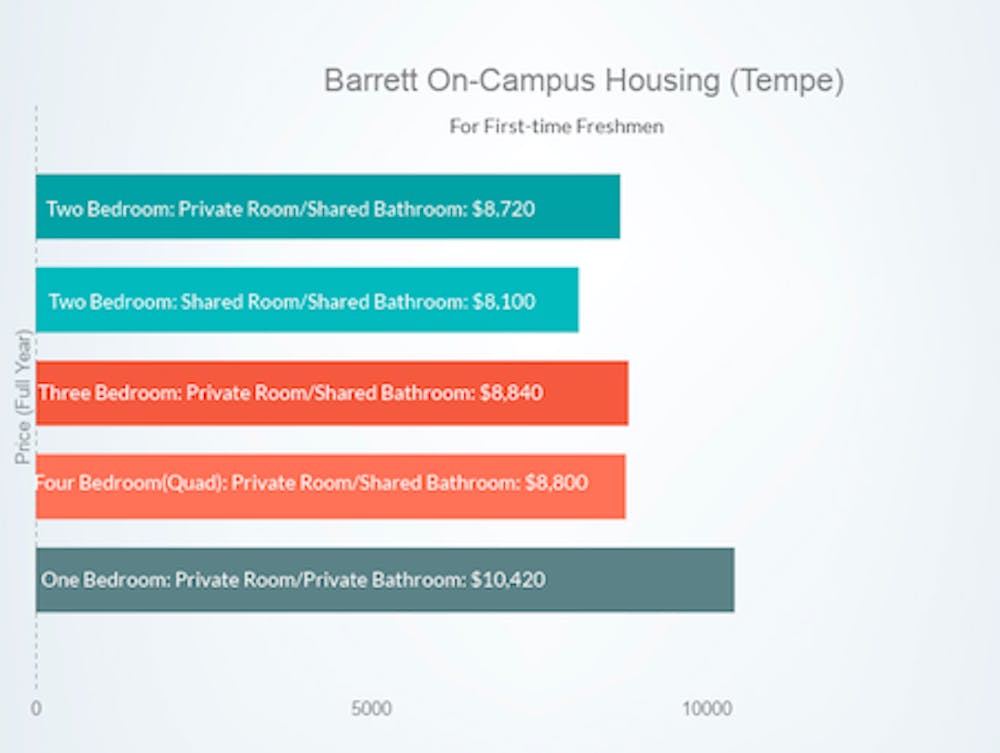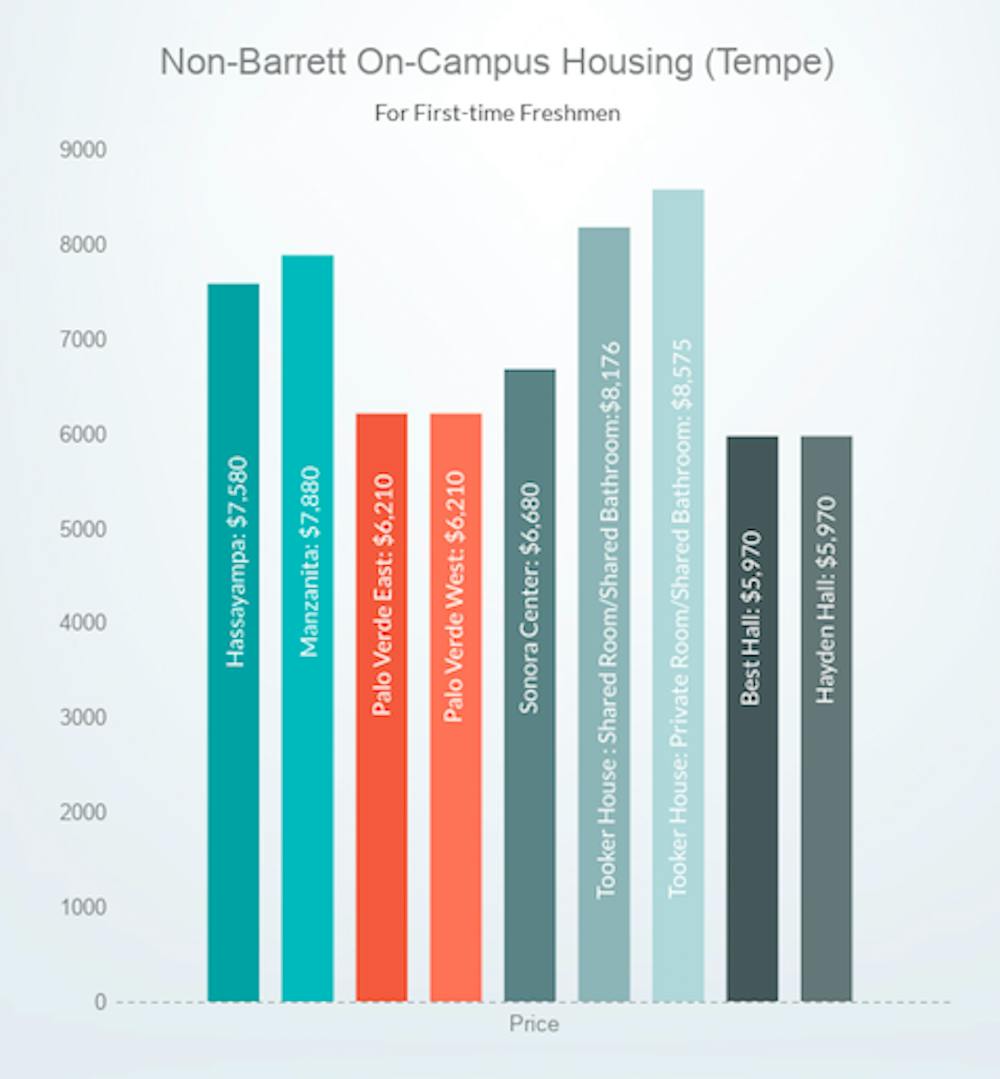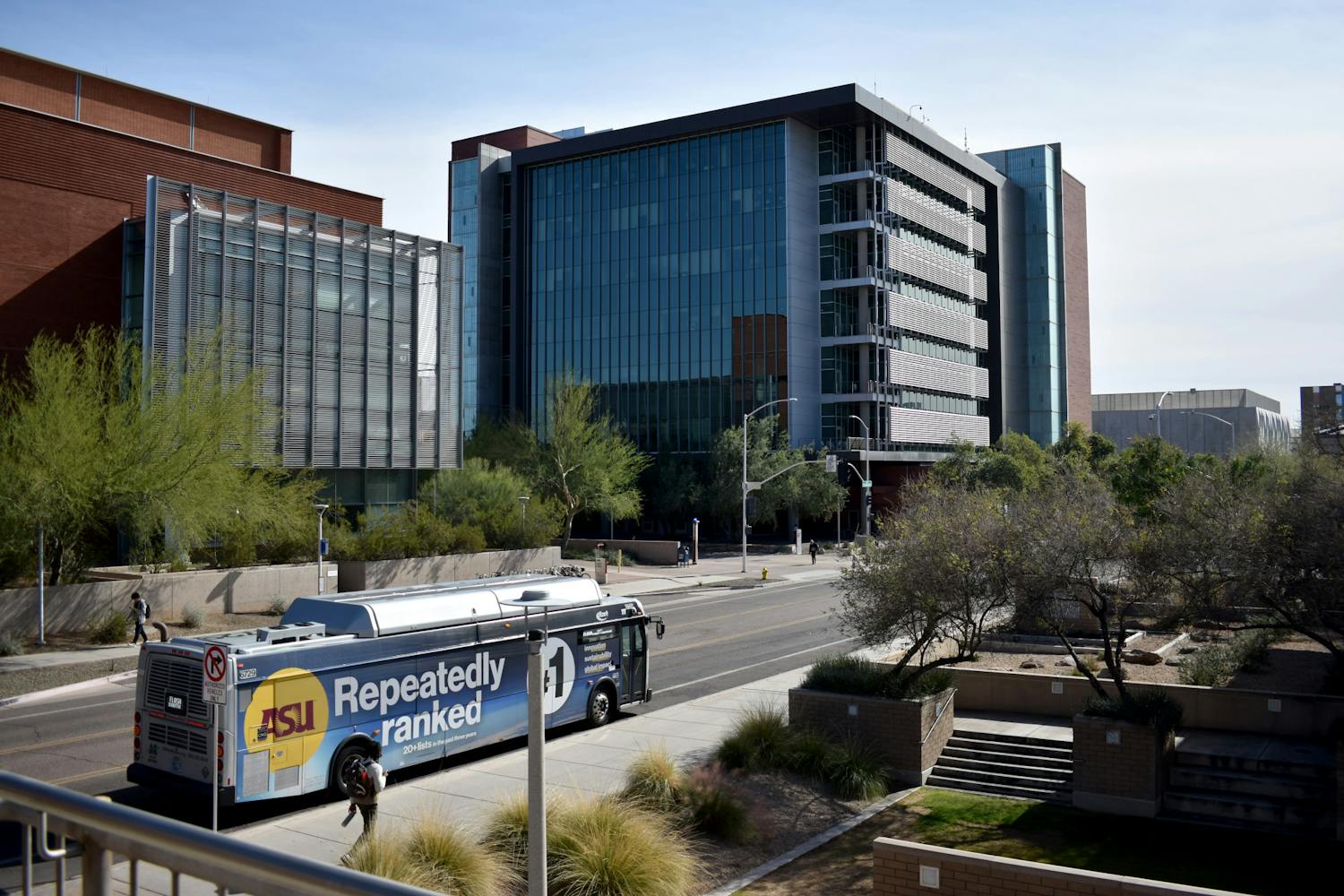The choice between on-campus housing and off-campus living options is long-standing and, depending on a student's schedule and lifestyle habits, there are positives and negatives to each option.
According to the University Housing website, all first-year freshmen are expected to live on campus and ASU guarantees them housing. However, for many students, the end of freshman year also marks the end of living on campus, meaning that the option of off-campus living like leasing an apartment or house nearby comes into play.
For first-time freshman students, adding on a meal plan is a required expense, meaning that a cost of a couple extra thousand dollars is tacked on as well.
Grace Ramsey, a criminology and criminal justice sophomore, said she’s glad she continued living on campus after her freshman year.
“Being a two minute walk from all of my classes is incredibly convenient,” she said. “I honestly just love the culture and experience of living on a college campus. There’s always activities to do, you live down the hall from your best friends and you live with your best friend.”
Ramsey said the convenience of living on campus carries from her academic life to her social life as well.
“It makes me a very involved student,” she said. “To always know what’s going on and always have people surrounding me that are interested in the same things I am and working to the same things I am is a very supportive environment.”
Rates for living on-campus at Tempe can range from $5,970 to $8,575 for a full academic year for non-Barrett students, according to University Housing.
Housing rates for Barrett, the Honors College students at the Tempe campus range from $8,100 to $10,420 for a full academic year.
When it comes to off-campus living, apartment complexes surrounding the Tempe campus such as 922 Place, The District on Apache, West 6th and Rise on Apache, have all been hotspots for undergraduates.
Rates for off-campus apartments show more variety and come with more options in terms of floor plans compared to traditional on-campus residence halls.
For most apartments around campus, a lease lasts 11.5 months with payments typically divided into 12 equal installments, but different complexes may offer differing accommodations.
ASU also provides resources for students when they decide to undergo the process of transitioning to off-campus living.
"ASU’s Off-Campus Student Services staff stands ready to support students in making the transition from living on-campus in residential colleges to off-campus housing in the surrounding communities," said ASU Housing spokesperson Kellie Cloud in an email. "The OCSS staff provides assistance with locating housing and finding roommates that meet their needs."
At 922 Place, the price of a one bedroom, one bathroom apartment is $1,329 per month, according to its website. Rates for a shared living space of two bedrooms and two bathrooms start at $864 per person per month and increase in price with various layouts.
One would spend $15,948 at 922 Place in order to live in a one bedroom, one bathroom apartment for a year. While monthly payments typically cover utilities such as internet, cable, water and sewer fees, costs like groceries and cleaning supplies are not factored in.
Justin Aungst, a junior studying art studies with a focus in photography, said choosing to live in an off-campus apartment was more practical than the dorms for his situation.
"The biggest reason why (I chose to live off campus) was that it was cheaper," he said. "And I got more space and didn't have to share a room with someone."
Aungst said despite missing out on the social aspect that comes with living in the dorms, living on his own isn't something he regrets.
"I'm sure I did miss out on stuff but I didn't think of it as big deal to me," he said. "I definitely preferred living in an apartment."
For some students, choosing to forego both options and live at home is the best choice.
Aira Valera, a speech and hearing science freshman, said that aside from dealing with rush hour traffic, living at home was best for her situation.
“It was the best thing for me financially,” she said. “I didn’t want to take out loans to dorm and I didn’t think ASU was that far (from home), and it’s not. I’d rather just pay for gas than pay thousands.”
Valera said while at times she thinks about the benefits of living on campus instead of staying at home, she doesn’t regret her decision.
“I like living at home because I don’t have to pay for rent,” she said. “My mom makes a lot of food. It’s just that simple stuff I don’t have to pay for.”
Valera said that while living at home works for her, students should consider many factors when deciding where they want to live while in college.
“If someone is concerned about finances and money then I say to just live at home,” she said. “But if you want more of an experience and money is not an issue then (live at the) dorms.”
Reach the reporter at Kimberly.Rapanut@asu or follow @kimrapanut on Twitter.
Like State Press on Facebook and follow @statepress on Twitter.






